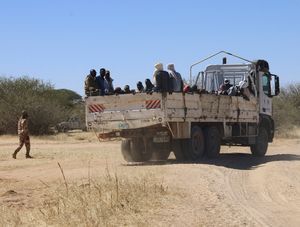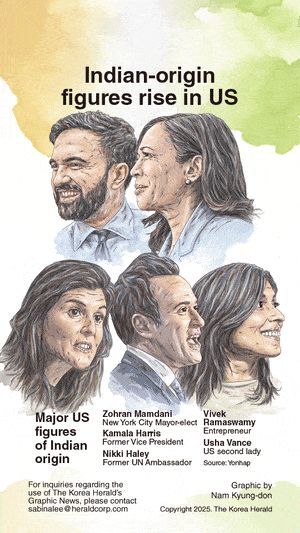High-Stakes Trade Talks: South Korea’s Officials Race to Washington to Save Exports
koreaherald Views
![Trade Minister Yeo Han-koo (left) and Finance Minister Koo Yun-cheol (Newsis)]](https://contents-cdn.viewus.co.kr/image/2025/07/CP-2023-0309/30884332.jpg) With an imminent U.S. tariff deadline threatening Korean exports, high-ranking Seoul officials are set to travel to Washington this week for critical trade talks aimed at preventing severe setbacks in the automotive, steel, and other key industries.
With an imminent U.S. tariff deadline threatening Korean exports, high-ranking Seoul officials are set to travel to Washington this week for critical trade talks aimed at preventing severe setbacks in the automotive, steel, and other key industries.
Deputy Prime Minister and Finance Minister Koo Yun-cheol, along with Trade Minister Yeo Han-koo, will represent Seoul in discussions with U.S. Treasury Secretary Scott Besant and U.S. Trade Representative Jamieson Greer.
With only 10 days remaining before a potential 25 percent reciprocal tariff on Korean goods—a measure advocated by U.S. President Donald Trump—Seoul aims to reduce product-specific duties while addressing non-tariff barrier issues related to currency policy, agriculture, and digital platform regulations.
On Tuesday, Korea’s top economic officials held an emergency strategy session in Seoul to align their positions ahead of the Washington discussions.
“All relevant ministries have agreed to work as a unified team, pursuing a comprehensive and coordinated response that prioritizes national interest and pragmatism,” Koo said during a press conference following the meeting.
Industry Minister Kim Jung-kwan was initially expected to join the upcoming tariff talks; however, the U.S. requested that Seoul send Yeo, Korea’s chief trade negotiator, instead.
Foreign Minister Cho Hyun and Industry Minister Kim also plan to travel to the U.S. separately to meet their counterparts, with visits potentially taking place as early as this week, according to Koo.
Currently, Korean exports incur a 10 percent base tariff, with additional duties applicable to key products such as automobiles and steel. Without progress, the baseline tariff could escalate to 25 percent starting in August, further straining Asia’s fourth-largest economy.
Beyond tariffs, the U.S. is seeking concessions on several sensitive non-tariff issues. Reports indicate that Washington is pushing for greater market access for American agricultural and livestock products, a relaxation of Korean regulations on American digital platforms, and approval for the overseas transfer of high-resolution maps at a 1:5,000 scale—data that is currently restricted for national security reasons.
Officials familiar with the matter expect discussions to include removing age restrictions on U.S. beef imports, expanding Korea’s rice import quota, and potentially opening the market to U.S. apples.
In response, Seoul is weighing its own array of trade-offs.
The government is reportedly preparing a comprehensive package that involves increasing imports of U.S. liquefied natural gas, pursuing industrial cooperation in shipbuilding and manufacturing, and possibly participating in the Alaska gas pipeline project as part of a reciprocal deal.
Trade experts advise that Seoul should secure firm guarantees from Washington before making any concessions.
“We need to negotiate effectively, but only in a way that ensures clear and binding commitments in return and guards against any policy reversals,” said Kim Yang-hee, a professor of economics at Daegu University.
While Washington is intensifying pressure on dozens of countries ahead of its August 1 tariff deadline, only the UK has finalized a deal so far, she noted.
“Despite its aggressive approach, the U.S. is not in a clearly advantageous position. If it goes ahead with imposing all the tariffs as planned, it will confront significant challenges from inflation, rising bond yields, and a weakening dollar,” she explained.
Aligning Korean regulations with international norms could serve as a pragmatic starting point in negotiations, according to Lee Hye-min, former chief negotiator for the Korea-EU FTA and visiting professor at Hankuk University of Foreign Studies.
“Korea could initially address issues that fall short of global standards as part of efforts to narrow the gaps in the talks,” he suggested.
Loosening restrictions on U.S. beef imports could be one such area, although Korean farmers’ groups strongly oppose the move.
Imports are currently restricted to cattle slaughtered before reaching 30 months of age—a safeguard introduced after the mad cow disease scare in the early 2000s. U.S. industry groups argue that the rule is outdated, noting that China, Japan, and Taiwan have since eased similar restrictions.
While the full economic impact of the tariffs has yet to be realized, Korea’s growth is already showing signs of strain. The gross domestic product contracted by 0.2 percent in the first quarter compared to the previous three months and declined by 0.1 percent year-on-year, marking four consecutive quarters of near-zero growth.
Analysts estimate that the tariff hike could reduce U.S. shipments by 2 to 4 percent and lower Korea’s full-year growth by up to 0.1 percentage point.










Most Commented